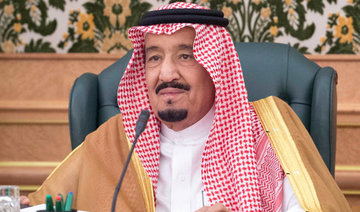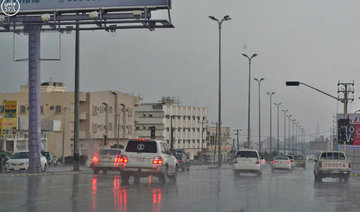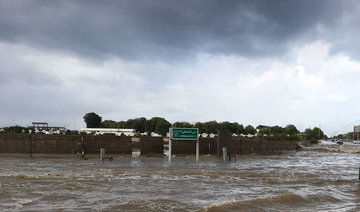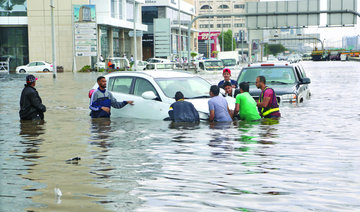You have had it up to here reading about Donald Trump? Well, if a candidate is about to be chosen by his party as its nominee for president in the next general election, as Trump appears to be, given his win after win in five East Coast states in last Tuesday’s primaries, you better read all you can about him. The man may, just may, become America’s next chief executive.
After his stunning victory last Tuesday night, which has given Trump the widest path to a majority of pledged delegates, and clearly narrowed, if not eliminated, his two remaining opponents’ chances of stopping his now inexorable march to the Republican presidential nomination, you wonder about it all. Then you wonder about something else: Who are these Americans who have voted for him and cheered lustily at his rallies? And why has he hit a chord with them?
Sure, experts, pollsters and political analysts have repeatedly told us who these folks are — alienated and under-educated working stiffs who feel that immigrants are taking over their jobs, their neighborhoods and their American way of life. Their incomes have remained frozen despite the putative recovery from the 2008 recession, and they have continue to struggle to pay their kids’ college tuition — where they can afford to send them there — meet their mortgage payments, and secure their families’ future. And that does not include the cost of tattoos.
Enter Donald Trump, a populist who speaks their language and shares their prejudices, if not their travails. Like Barry Goldwater in his 1964 Republican campaign, who told supporters that “extremism in the pursuit of freedom is no vice,” Trump tells his that racism in the pursuit of political expediency is no vice. He mocks. He dares. And he is provocative, he is funny and he is entertaining, for who would’ve failed, at his rallies, to be entertained by the man’s insurgent rhetoric and scandalous, off-the-cuff wisecracks?
And never mind that he is a phony, a charlatan and a clot who is clueless about how to lead a big power with global responsibilities. But darn it, he knows how to be responsive to his supporters’ angst. He consoles those white middle-aged, middle-brow, middle-Americans who feel that the America their parents and grandparents had known — with Doris Day and Rock Hudson bantering in “Pillow Talk,” Elvis Presley crooning “Heartbreak Hotel,” and Ralph Kramdon asking Alice if she wants to go to the moon in “The Honeymooners” — slipping away from them, its culture transforming right before their eyes. Trump promises to retrieve that lost Eden to them, that forlorn, vacuous America of yore.
But Americans are a diverse people, evincing extremes in their world view — America is not called a “nation of nations” for nothing, whose population is made up of people who literally come every country in the world — and this is why, in a way, Donald Trump and Bernie Sanders are the flip side of each other, two dialectical opposites, attracting equally impassioned supporters, but ones with fiercely contrasting views. Sadly for Bernie, Trump’s supporters outnumber his.
Trump is so confident, after his resounding victory in the primaries last Tuesday, of his impending nomination by his party at its national convention in July, that he gave what was dubbed a “foreign policy speech” at the Mayflower Hotel in downtown Washington the following day, a speech so incoherent and vague (surprise, surprise!) that it bordered on meaningless, where, no, he did not pledge to bring back waterboarding, kill the family members of Daesh militants and deport en masse 12 million undocumented immigrants, but he did pledge to “put America first,” whatever he meant by that.
In an editorial last Thursday, the New York Times wrote: “No one’s fears are to be allayed by this speech ... It did not exhibit much grasp of the complexity of the world, understanding of the balance or exercise of power or even a careful reading of history.” The Washington Post editorialized: “Mr. Trump degrades people, serially insulting women, Latinos, Muslims, immigrants, Jews and others. He erodes the discourse, frequently and flagrantly lying about things such as whether ‘scores’ of terrorists have recently entered the US as migrants — one of numerous false claims he made in his speech on foreign policy Wednesday ... In short, he should inspire fear that someone so lacking in judgment and restraint could acquire the powers of the presidency.”
As for those few sane Republicans still left on the scene, they can always listen to Lesley Gore and sing along, “It’s my party and I can cry if I want to.”
A disaster in the making
A disaster in the making
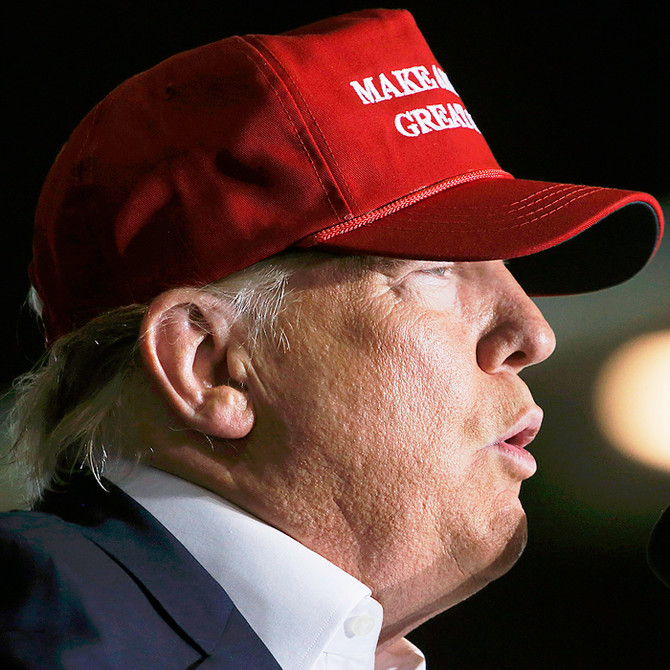
Letters on Afghanistan: For Rahimullah
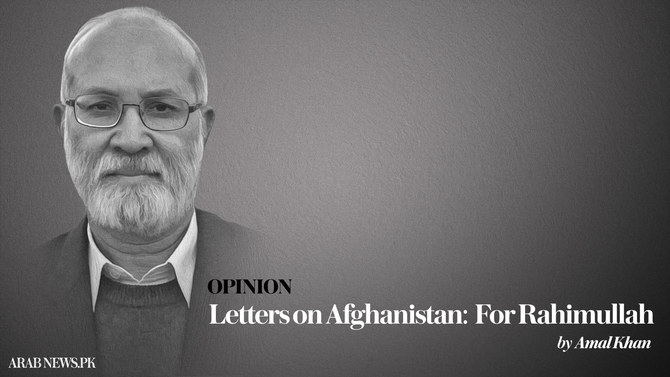
As an Op-Ed editor, I know that people are deeply attached to the opinions they put down on paper. They’ve worked on every comma and capital letter. I’ve edited the words of ex-Presidents, ex-army chiefs, sitting ministers, diplomats, experts and journalists. I have fought hard battles just to edit the titles of pieces, to move a paragraph up or down, to cut out a line. All my writers are distinguished and knowledgable, and so all of them prefer their work published a certain way. All writers, maybe all people, have a natural vanity about their opinions.
All of them that is, except Rahimullah Yusufzai.
Rahimullah, who died on Thursday, was an award-winning Pakistani journalist, and spent his life reporting on Afghanistan. He was the stoic narrator of its long theatre of war, his credentials faultless and his word held in the highest esteem by people on all sides of that conflict. Famously, he interviewed both Mullah Omar and Osama Bin Laden, and the iconic 1998 photograph of bin Laden smiling inside a neon green tent was taken by his hand. It is not a stretch to say only a few other journalists are as high an authority on Afghanistan as Rahimullah was.
But side by side, Rahimullah was a reporter in the truest sense. He would call me up, because he wanted to ‘hear from his editor.’ He would send updates to his columns late into the night. He would pitch his pieces for me to assign.
“Is my topic fine, editor?” he would ask.
I’d laugh.
‘For Amal,’ was the title of his columns. As though he had written it only for me. A letter, not a column, on Afghanistan.
“Sir, you were in Kandahar reporting on these guys when I was in kindergarten,” I told him.
“But you are still the editor,” he said.
Rahimullah never questioned the edits, he never protested about the titles, the extracts, the tweets. He did his work, he wrote his reports and his columns, and then he passed on his 800 words to ‘the editor’ with ultimate faith. It was his faith not in me, but in the institution of journalism.
In January last year, Rahimullah lost his wife and didn’t write for three weeks. He sent me an apology and an explanation as straightforward as his reporting.
“It was Allah's will and we have no say in these matters,” he said.
Throughout his illness, he continued to write for us at Arab News. When Kabul fell to the Taliban last month, all of us naturally turned to him for his point of view. It could be nobody else. Who else but Rahimullah could write on the most important development in Afghanistan in two decades. Though seriously ill and very frail, when asked he said simply, “Yes, I will write.”
His last piece was published with us on Wednesday, only a day before he died.
Rahimullah always emailed his pieces untitled. Instead, the document was named after myself and my colleague, Iraj. Perhaps this was the result of decades of typing up quick copies for the wires.
‘For Amal,’ was the title of his columns. As though he had written it only for me. A letter, not a column, on Afghanistan.
Well, I now have three years worth of letters written by one of the greatest reporters of our time, addressed to me.
It has been the honor of my life to work with Rahimullah, and though there will be many Afghanistan columns falling into my inbox in the months and years to come, never again will one be as true or as humble-- or be written only for me.
Rest in peace, sir.
– The writer is an editor, Arab News Pakistan.
Tweets @amalkhan
EDITORIAL: Jeddah floods a reminder of why we need the anti-corruption drive
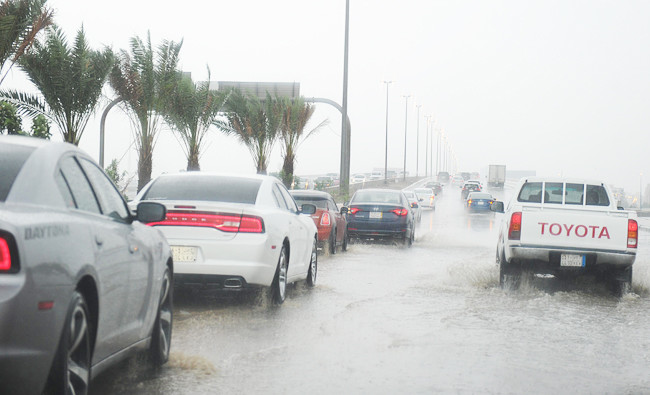
For the residents of Jeddah, rain has, more often than not, brought trouble and devastation. Whenever the skies open up, thoughts go back to that “Black Wednesday” of November 25, 2009, when more than 100 people lost their lives and property worth billions of riyals was destroyed. An investigation was opened into the disaster and some of the guilty were taken to court and tried; some of the small fry were even jailed. As has been the case in the past, the mighty arm of the law could barely touch those at the top who enjoyed immunity from prosecution.
And so it was business as usual until the rain began to wreak havoc again, reminding us that the laws of nature take their course and that hiding your head in the sand does not chase the clouds away.
Having said that, it must be admitted that, yes, lessons were learned. A disaster management team was set up. The weather forecast department became active in issuing alerts. In fact, Tuesday could have been far worse had it not been for the timely alert from the Presidency of Meteorology and Environment (PME) and a prompt decision by the Ministry of Education to suspend classes, schools and universities in and around Jeddah. That helped in keeping people and vehicles off the streets. At noon on Tuesday, it looked as if the city were under some kind of curfew.
The questions that are on everyone's minds right now are: Why is it that rain renders the city helpless and immobile at this time every year? Why have efforts to create effective rainwater drainage systems not borne fruit despite pumping billions of riyals into new projects such as dams and canals? Why is it that the authorities are found wanting whenever heavy rain occurs? More importantly, what is the solution?
Here is the answer. These floods are a stark reminder of why the current drive against corruption is so essential. It is required in order to instill the fear of law into high-ranking officials and heads of construction companies and civic bodies who have failed in their responsibilities. Those who have cut corners and have pocketed public money, those who have not delivered on the projects and who have provided substandard services must pay for their sins of omission.
This is exactly what is happening. No one is above the law. The guilty, whoever they are, however high up they are, will have to pay — and they are. In this new era of transparency and accountability — initiated by Crown Prince Mohammed bin Salman — word has gone down from top to bottom that no one is immune. If you are guilty you will be punished. Those responsible for the havoc of the floods on Tuesday will have no rest either.
Syrian civil war
According to a UNICEF report, grave violations against Syrian children during the war have been recorded. The children in Syria are not only maimed and killed as a result of bombings but also forcefully recruited to be part of the conflict. Children as young as 7 years old are pushed into the front line as fighters, suicide bombers and executioners! The actual figures of those injured, dead and forcefully-recruited children are far higher than in the UNICEF report.
The innocent children “used” in the conflict have had the right to blossom, the right to enjoy life and the right to be on a play-ground torn from them. They have been deprived of the right to education and, according to UNICEF, nearly two million children have been forced to stop their education with one-third of school buildings rendered inoperative due to destruction.
With their often physically crippled parents, the children have to be the sole bread-winners in nearly 75 percent of Syrian households. Unwillingly, the children are forced to serve as garbage collectors, hairdressers and cleaners. Keeping aside what Assad gets out of this war, the beneficiaries of the war are weapon manufacturers who may well be dubbed parasites living on the blood of innocents.
Assad, the inhuman butcher of humanity, does not care what the world says, opines, suggests and warns about the catastrophic war in Syria. More than the ruinous acts of Assad, Russia and Iran, it shocks, grieves and pains to see that the world and the Muslim world has done nothing to stop the butcher of this century from his brutal and barbaric destruction of his own nation and his own people.
Public transport in Jeddah
It is getting more expensive to travel by limousine; a one-way journey used to cost up to SR15 ($4), but now customers can expect to pay SR20-25. Teachers and students are the worst affected.
Hiring a taxi or small van can incur monthly costs of up to SR600 per person, which is atrocious. Most drivers demand to be paid at the start of the month, with weekends off. So if there are proctoring duties at the weekend, one needs to hire a regular taxi, which adds to the cost.
Jeddah is very popular among Saudis and expatriates. It has a constant flux of religious tourists, guest workers and Saudi citizens who come here to work. Compared to other cities in the Kingdom, Jeddah is cheaper in terms of housing and consumer items. Considering the large number of people on the go, it is very strange that the authorities have not looked into this most important of issues.
There should be public transport in the city, such as buses and small vans that can carry a number of people at one time on fixed routes, just like elsewhere all over the world. Such transport is cheaper and more convenient, especially for those who need to commute every day. In terms of cultural considerations, there can be an opaque partition separating men from women and children.
With burgeoning costs of living, taxes on remittances and rising residency fees, a smooth public transport system is needed, and should be among the government’s top priorities in future city planning.
Bad girls
The article does not say what started the brawl, but for young women to behave in such a manner is a disgrace to themselves, their families and reflects badly on all Saudi women. But as much as their behavior should be condemned, it would have been helpful if we understood the cause of the fight. By knowing the cause, we might better understand why such young ladies would engage in such aggressiveness.
But in the end, is it really necessary to expel nine girls from the university, denying them an education at a crucial point in their lives? Suspension, yes. Certainly probation for the remainder of their studies. But to ban the girls from ever obtaining a higher education at a Saudi university denies them an opportunity to become productive members of Saudi society.


